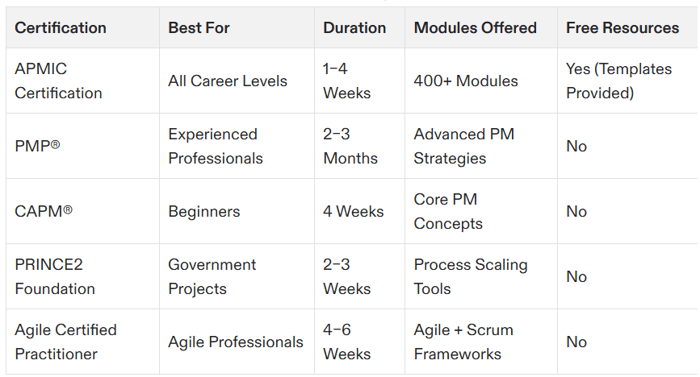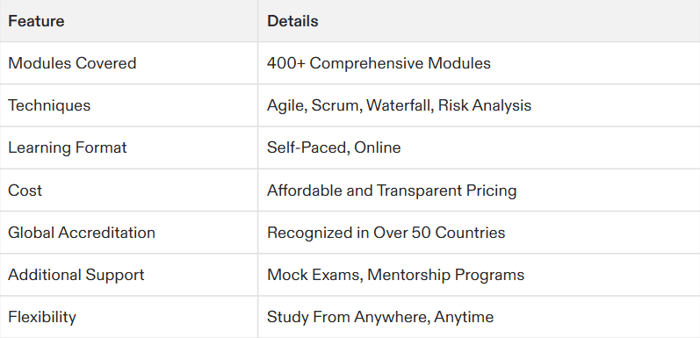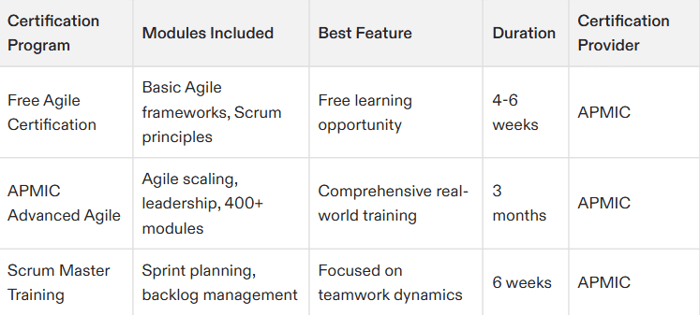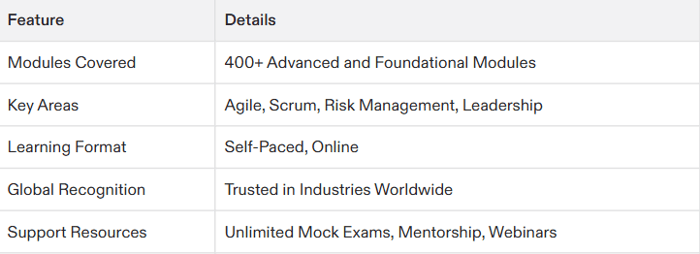Table of Contents
- Introduction
- What Does It Mean to Get a Project Management Certification?
- Why Should You Get a Project Management Certification?
- How to Get a Project Management Certification
- The Best Certifications to Consider
- Advantages of APMIC’s Certification Program
- FAQs About Getting a Project Management Certification
- Informative Certification Comparison Table
- Final Thoughts
Introduction
The world of project management is growing rapidly, with demand for skilled professionals soaring across industries. From IT to construction, businesses are looking for certified project managers who can lead teams, implement strategies, and deliver results. A great way to prove your expertise and stand out in the competitive job market? Get a project management certification.
This blog covers everything you need to know about how to get a project management certification, why it’s essential for today’s workforce, and why programs like APMIC’s are leading the way with unmatched flexibility. Whether you’re new to the field or looking to advance your career, this guide is your ultimate resource.
What Does It Mean to Get a Project Management Certification?
Certifications in project management are formal credentials that verify your ability to oversee projects effectively. But what does it truly mean to acquire certification? Essentially, it demonstrates that you:
- Have solid project management knowledge.
- Understand established methodologies like Agile, Waterfall, and Lean.
- Excel in skills such as scheduling, risk management, budgeting, and stakeholder management.
When you get a project management certification, you show potential employers that you’re well-equipped to handle the complexities of modern projects. It’s a stamp of approval for your capabilities and can significantly enhance your career mobility.
Why Should You Get a Project Management Certification?
With certifications becoming gold standards in many industries, the reasons to invest in one are compelling. Below are the key benefits of pursuing this path.
1. Increase Employment Opportunities
Certified project managers are in high demand. Earning credentials like PMP® or APMIC can dramatically improve your hiring prospects.
2. Boost Your Salary
Research consistently shows that certified professionals earn higher salaries. According to reports, project managers with certifications enjoy an average salary increase of 20–25%.
3. Strengthen Your Skillset
Certifications focus on essential competencies such as conflict resolution, documentation, and stakeholder engagement.
4. Gain a Competitive Edge
Standing out in a crowded job market is vital, and earning a project management certification gives you an edge over non-certified colleagues.
5. Build Career Versatility
From healthcare to marketing, project management certifications open doors to various industries.
How to Get a Project Management Certification
1. Evaluate Your Career Goals
Before enrolling, define your objectives. Are you starting out or aiming for a leadership role? Determining your goals will guide your certification choice.
2. Research Certification Programs
There are multiple options depending on your level of experience. Programs like APMIC, PMP®, or PRINCE2 stand out for their comprehensive curricula.
3. Choose the Right Institution
Factors to consider while choosing the right certification include reputation, course delivery flexibility, the relevance of modules, and industry recognition.
4. Enroll and Prepare
Most certifications require preparatory courses that teach methodologies, strategies, and principles. Resources like templates and practice exams enhance your readiness.
5. Pass the Certification Exam
Once you've completed preparation, the final step is passing the certification exam. Most tests evaluate both theoretical and practical knowledge.
For the best results, enroll in industry-leading institutions like APMIC that offer tailored learning programs.
The Best Certifications to Consider
When it’s time to get a project management certification, there are abundant choices. Here’s a rundown of some leading certifications and what makes them unique.
1. PMP® (Project Management Professional)
A globally recognized certification for experienced professionals.
- Best For: Advanced-level managers.
- Focus: Risk analytics, team leadership, and budgeting.
- Duration: 2 months preparation.
2. APMIC Certification
One of the most flexible and detailed programs available today. APMIC provides tailored options for beginners to advanced professionals.
- Best For: All career stages.
- Focus: Agile projects, risk management, and cost optimization.
- Duration: Fast-track certification available in 1–4 weeks.
- Why Choose APMIC: With 400+ customizable modules, APMIC offers unparalleled depth. Learn more here at APMIC’s Certification Program.
3. CAPM® (Certified Associate in Project Management)
Ideal for entry-level candidates looking to hone project management fundamentals.
- Best For: Beginners.
- Focus: Basic methodologies and terminology.
- Duration: Approximately 4 weeks.
4. PRINCE2 Foundation
Popular in Europe for structured methodology training.
- Best For: Public sector and large-scale projects.
- Focus: Process-driven guidelines, scalability options.
- Duration: 2–3 weeks.
5. Agile Certified Practitioner (PMI-ACP®)
Tailored for Agile professionals who want a deeper understanding of frameworks.
- Best For: IT specialists and software developers.
- Focus: Agile workflows and Scrum methodology.
- Duration: 4–6 weeks.
Advantages of APMIC’s Certification Program
If you’re looking for the definitive way to get a project management certification, APMIC ticks all the boxes.
400+ Customizable Modules
From advanced scheduling to digital frameworks, choose modules that fit your career goals.
Globally Recognized Credential
APMIC certification is trusted internationally across industries like technology, construction, and healthcare.
Free Tools and Resources
Enjoy access to templates for Gantt charts, project reports, and time management workflows for practical application.
Flexible Learning Approach
Self-paced options allow you to balance learning with professional commitments.
FAQs About Getting a Project Management Certification
1. Why should I get a project management certification?
It boosts your skills, enhances your professional credibility, and increases your earning potential.
2. What is the easiest way to get certified?
Choose flexible programs like APMIC, which offer self-paced modules and fast-track options that simplify the process.
3. Can I do this fully online?
Yes! Reputable certifications, including APMIC, provide fully online platforms to suit your schedule.
4. Which certification is best for beginners?
CAPM® and APMIC’s entry-level modules are perfect for newcomers seeking foundational knowledge.
5. How long does it take to complete certification?
Depending on the provider, certifications can take anywhere from one week (fast-track) to a few months.
Informative Certification Comparison Table
Final Thoughts
When you decide to get a project management certification, you’re doing more than just earning a credential. You’re opening doors to better opportunities, greater responsibilities, and higher earnings. Certifications show employers and clients that you’re committed to excellence and skilled in project planning, execution, and innovation.
Whether you’re starting in project management or looking for advanced training, choosing the right certification is key. With options like APMIC providing robust, self-paced learning and practical tools, you’re one step closer to career success.
Don't wait any longer. Start your certification process with APMIC’s Program—your roadmap to professional growth!






